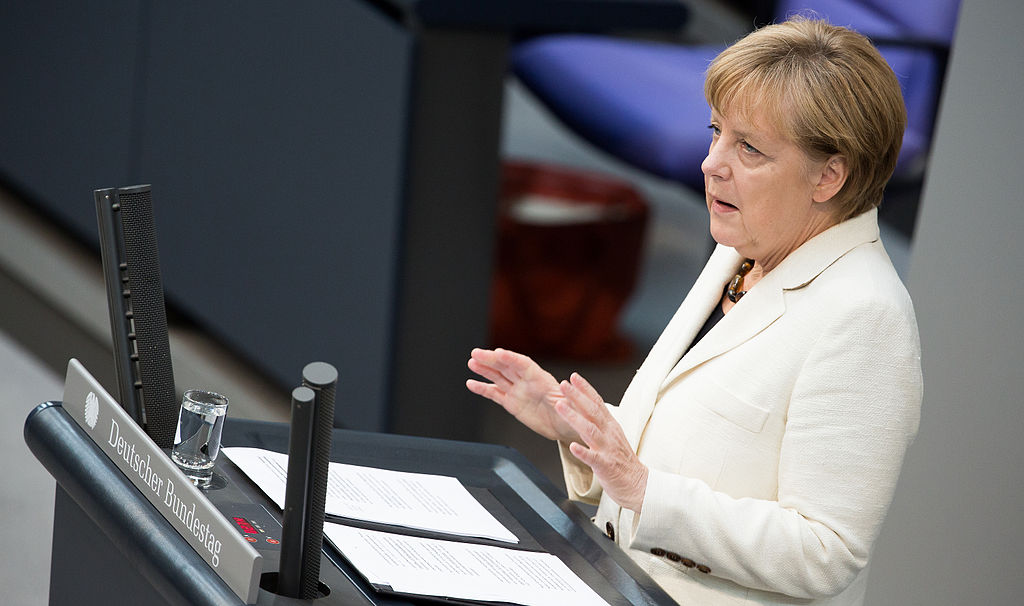Balancing Religious Freedom and Security in Germany’s Full-Veil Ban
Although nations have been dealing with international Islamic terrorism since the 1960s, Islamism’s threat has expanded over the last half-century. It has seeped out of immediate regional disputes in the Middle East and found its way directly into Western territory with the 1993 bombing of the World Trade Centers and the subsequent attacks on the World Trade Center and the Pentagon in 2001.
As if dealing with Islamism and the development of groups like ISIS was not enough, though, there has been a refugee crisis mounting in Syria for over five years. This civil war is complicated further by ISIS’s participation in the conflict as part of the rebels fighting against Syria’s corrupt government; the US and other Western and local allies are backing these rebels. This has brought many Western nations, especially those in Western Europe and the United States, into a complicated moral place: take in potentially radicalized Syrians and risk terrorist attacks at home, or allow millions of refugees to die. Furthermore, if refugees do enter, how does the nation distinguish a devout Muslim from a radical Muslim?
Last year, Germany took in around one million refugees in an effort to place the struggling Syrian refugees. After meeting backlash from her own party for this influx of migrants and crimes which have been committed by these migrants, German Chancellor Angela Merkel called for a nation-wide ban on ““full veil” religious coverings.” In late summer of 2015, the refugee crisis hit its peak, with tragic images and stories swirling through mainstream Western media, prompting Merkel to open Germany’s borders to the migrants on August 31st. In an effort to avoid migrant situations like last year, Merkel has been working with Turkey to curtail the number of asylum seekers entering Europe. Because of this generous intake of refugees, Merkel became seen as one of the last remaining defenders of “liberal democracy” in the world following Brexit and the United States’ election of Donald Trump. Her conservative proposal to ban all full-veil garb would change that.
A fear many people have when it comes to refugee migrants is the inability to vet newcomers, and the potential for dangerous crimes. Two migrants who entered Germany with the 2015 wave were recently arrested for rapes and murders of German and international students. One, a seventeen-year-old refugee from Afghanistan, raped and murdered a German medical student. The other, a thirty-one-year-old man from Iraq, raped two Chinese students. Merkel and her government have been under fire for not having strong enough vetting processes when they allowed the migrants in last year. There has also been significant intra-party conflict since the initial migration of refugees, exacerbated by crimes like these. The call for this full-veil ban is an effort to reduce national tensions and show her party she is ready for a fourth term as Chancellor of Germany. Otherwise, Germany’s far-right and vehemently anti-immigrant party Alternative for Deutschland stands to win. Merkel has to show Germany that opening the borders was, in some way, good for Germany.
Merkel argues that veils are “not appropriate here” as the veils are “a hindrance to migrant assimilation”. France, too, has struggled with the role burqas and niqabs play in adapting to French life. What is it about these face-covering garments that makes it difficult to coexist? This notion that one’s religious identity and its manifestation can inhibit one’s national identity is an interesting one. Is it right for France or Merkel to make this distinction? France has been very keen to separate religion and politics for quite some time. They passed a law forbidding the display of religious symbols back in 2004, and took it a step further in 2010, when they banned all clothing which covers the face in public areas. The European Court of Human Rights even supported this 2010 ban in 2014, saying “the so-called “burqa ban” made it easier for citizens to “live together.” This past summer, 30 French towns passed bans on the burkini, saying that they are “an insult to France’s strict interpretation of secularism.” Should national identities be separate from religious ones? Is a public display of religious devotion in the form of clothing really a threat to secularism?
Public, really, is the key, complex notion here. Jens Spahn is a lawmaker in Merkel’s Christian Democratic Union party. Spahn said that she does not “want to see the full veil — no niqab, no burqa, in public life in Germany.” At her party conference, Merkel said that she feared the dissipation of Islamic sharia law throughout refugee communities. She went on to further state that “We don’t want any parallel societies…Our law takes precedence before tribal rules, codes of honor and sharia.” This was met by cheers and applause at the conference. The ban on veiled coverings is a political statement that Islamist ideologies will not be tolerated. If that is the intention of the ban, then it implies that she, members of her party, and other European nations who are also passing these bans on religious garb, feel the same way.
Critics of Merkel’s recent desire to ban full-veils are questioning how many people in Germany even wear a full-veil. The only data collected on this matter says that 28% of Muslim women wear some kind of headscarf. Burqas and niqabs are the only Muslim garments that cover the face. German reporter Fabian Köhler asked for Germans to send him photos of anyone wearing a burqa, and the large majority of people sent back pictures of niqabs and hijabs. This shows that concepts of the burqa, niqab, and hijab are very jumbled. Islamic experts and the Afghan Embassy in Germany doubt anyone wears a burqa. Köhler’s research supports this, estimating around 200 niqabs but no evidence of burqas. Considering these statistics, does Merkel think that this ban will affect any real change? Some researchers even hypothesize that the ban on full-veils further isolates an already-isolated minority, and may hurt not help security problems. Critics accuse her of having ulterior motives in moving for a ban of full-veil coverings. German Interior Minister Thomas de Maizière told reporters, “You can’t ban everything you’re against.”
Is a ban on completely legitimate religious clothing an acceptable way to make this political statement? It certainly sends a message, but a message of what? It is pertinent of Western nations to take caution, as they are often the target of Islamist rhetoric and hate. Included in the veil ban would be a mandate that women will be fined if they do not remove their face coverings in order to compare their photo ID to their face. How far, though, should the ban on veiled coverings go? Because there is really no precedent for international terrorism and radicalization like what we see today, it is difficult to tell when steps to ensure national security infringe on personal expression of religion. Should being in public or in private affect this? France has already begun to make these calls, and Germany’s decision could solidify a new “norm.”





